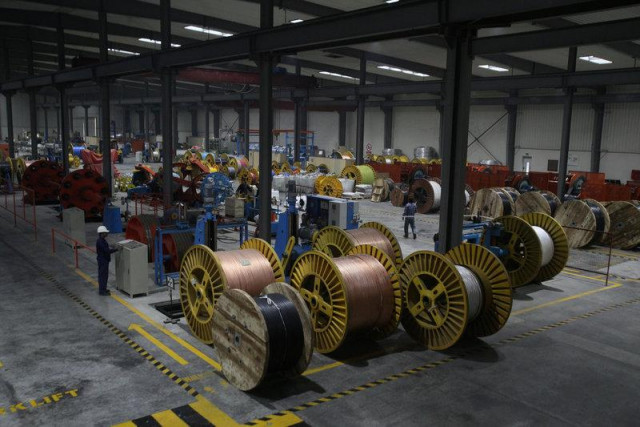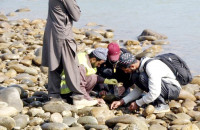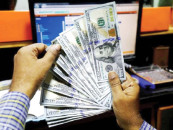Auto sector growth linked to ‘Make in Pakistan’
Company CEO cherishes increase in auto parts localisation in country

Experts from the automobile sector have claimed that progress of the industry is strongly linked to the “Make in Pakistan” policy that can only stem from long-term economic policies.
Speaking to media on Friday, Indus Motor Company CEO Ali Asghar Jamali said that Pakistan’s macroeconomic goals were tied to the “Make in Pakistan” strategy and import substitution.
“With a multiplier effect of 10, the auto industry can contribute to the strategy significantly,” he said.
He was of the view that economic planning should be kept separate from politics to enable the country to draft long-term economic policies.
He stressed that long-term policies, spanning a time period of three decades, would boost the confidence of businessmen, who would invest in the country.
He told the participants that the government was aiming to frame sustainable policies.
“Though the government announces policies for five years, industrialists want the policies to last a longer time period,” said Jamali. “If the government approves a 30-year policy, investment will go to every sector of the economy.”
He noted that the automobile industry invested heavily in the past four decades to establish an engineering base in Pakistan. “With 36 technical assistance agreements, we have laid the foundation of automobile technology transfer and have contributed to it significantly,” he said.
“This has not only generated employment but has also opened doors to exports from auto parts makers.”
He added that localisation of auto parts increased over time on the back of keen interest of the government and auto manufacturers. “Higher volumes result in higher localisation levels and vice versa,” he said.
He cherished that the original equipment manufacturers’ (OEM) move to enhance localisation of vehicle parts had helped the vendor industry significantly over the years.
“Local vendors and OEMs are working in collaboration for localisation,” said Jamali.
Citing that his firm was investing $100 million in the manufacturing of hybrid vehicles in Pakistan, he questioned where would the company stand if the government approved a policy against hybrid electric cars.
He elaborated that the investment would go to the localisation of components, plant expansion and production, and preparation to manufacture the first hybrid electric vehicle in the country.
After successful completion of the current Automotive Development Policy (ADP) 2016-21, the government would launch a new policy for 2022-26, which would focus on the “Make in Pakistan” initiative and environment-friendly cars, Topline Securities’ analyst Arsalan Hanif told The Express Tribune.
The new policy would provide various incentives to support Pakistan’s auto parts industry and encourage OEMs to increase the localisation of products.
Citing that the three major players were continuously increasing localisation levels, he forecast that new players would follow suit to claim the incentives offered for the purchase of local parts.
“Currently, some auto companies are planning to launch hybrid electric vehicles with focus on higher reliance on local parts,” Hanif added. “Such measures will generate employment and reduce pressure on imports.”
Agriauto CEO Fahim Kapadia said that when tax holidays for new entrants under the auto policy 2016-21 ended, the auto parts industry might witness an unprecedented growth.
“The new entrants are importing auto parts at concessionary rates offered in the automobile policy,” he said.
The government had offered concessions to the firms to incentivise them to invest in Pakistan.
“In the next stage, imports of auto parts will not remain viable for them and they will definitely approach local vendors, which will create jobs and boost economic activity,” Kapadia said.
Published in The Express Tribune, November 27th, 2021.
Like Business on Facebook, follow @TribuneBiz on Twitter to stay informed and join in the conversation.



















COMMENTS
Comments are moderated and generally will be posted if they are on-topic and not abusive.
For more information, please see our Comments FAQ